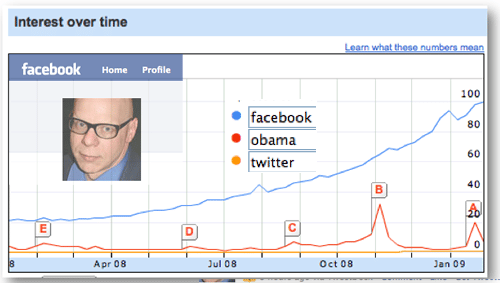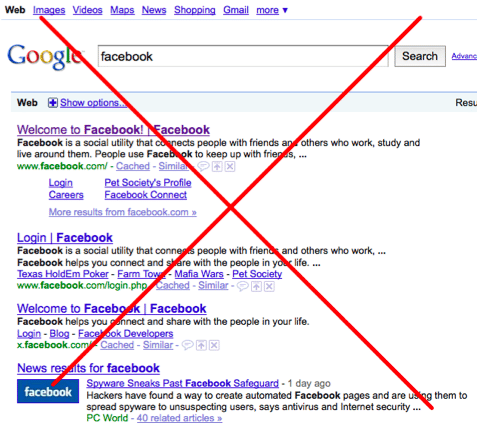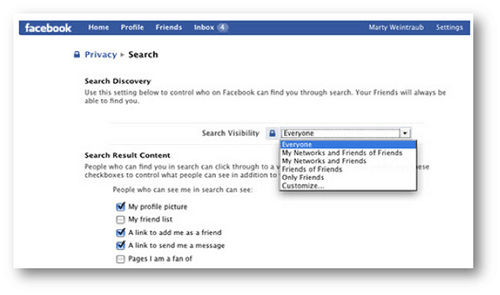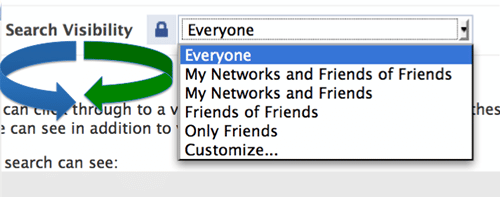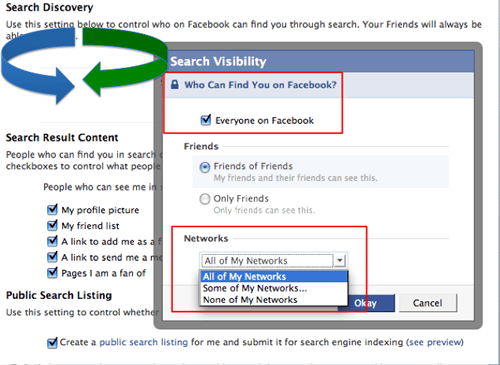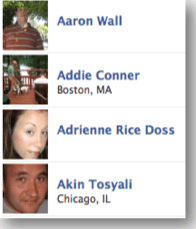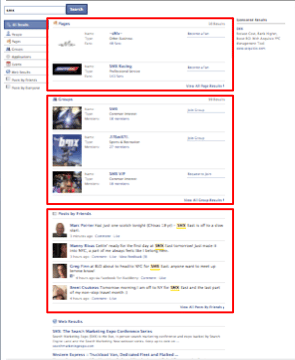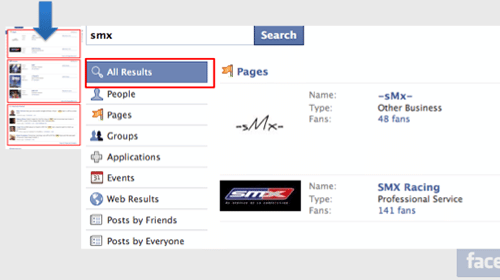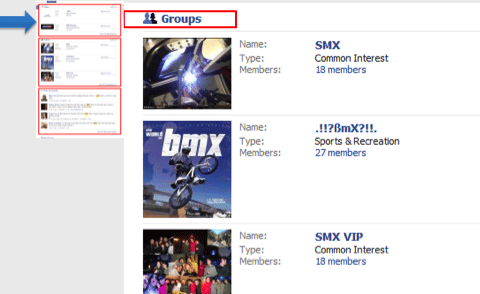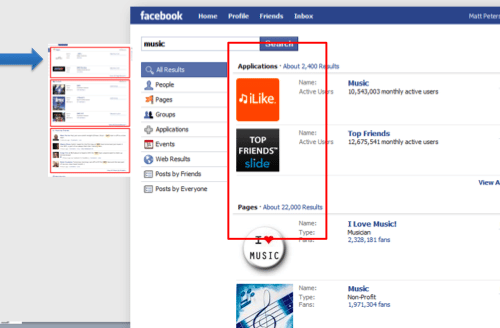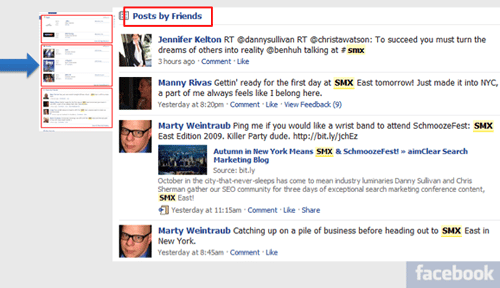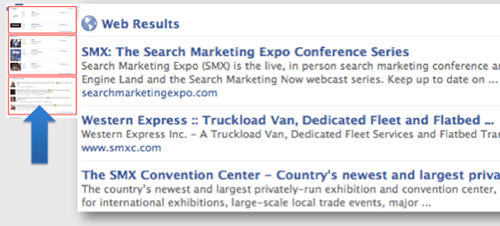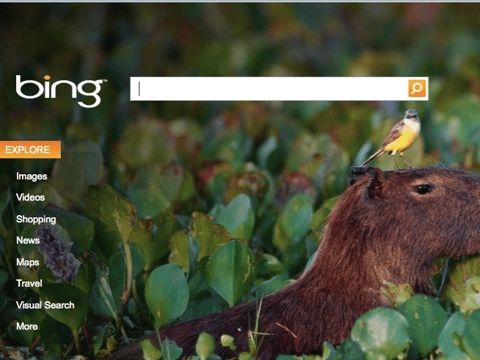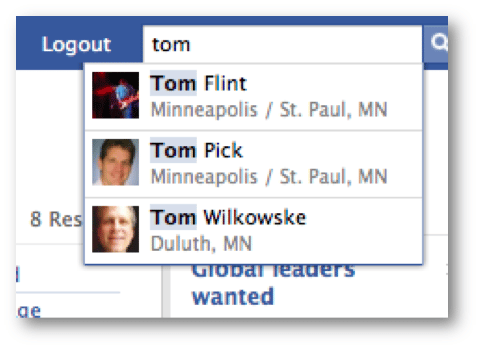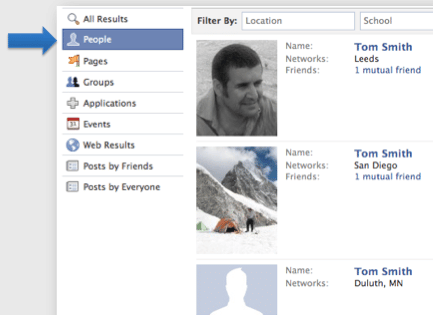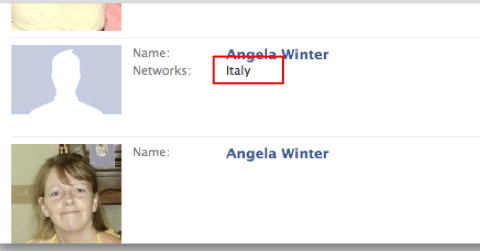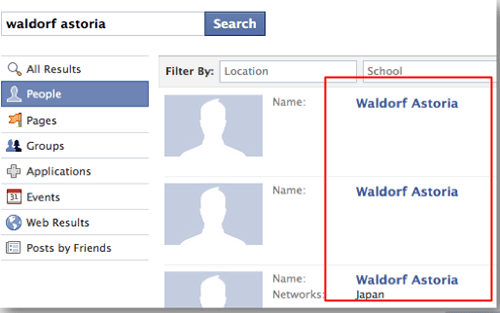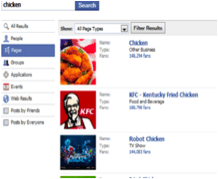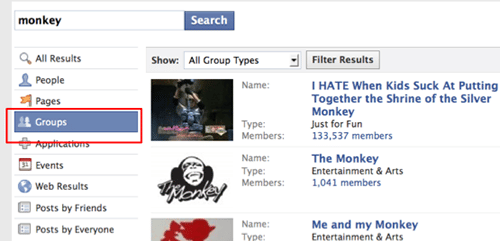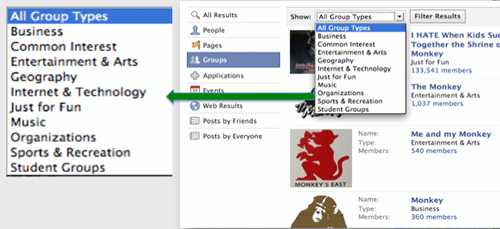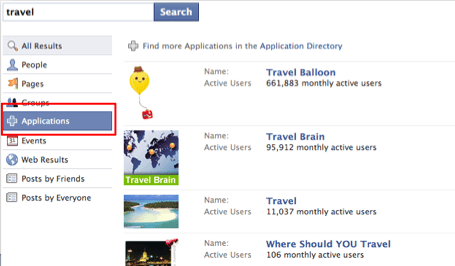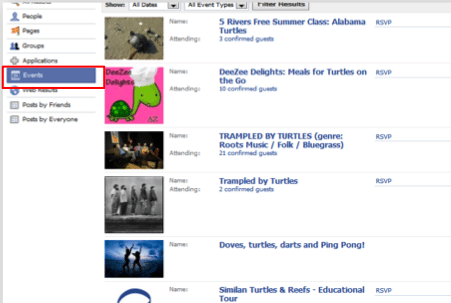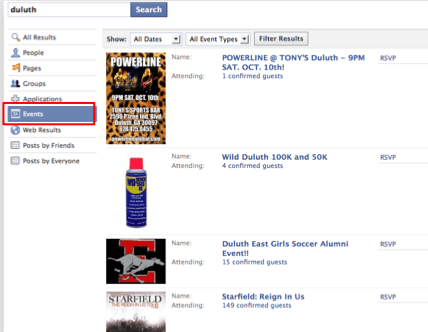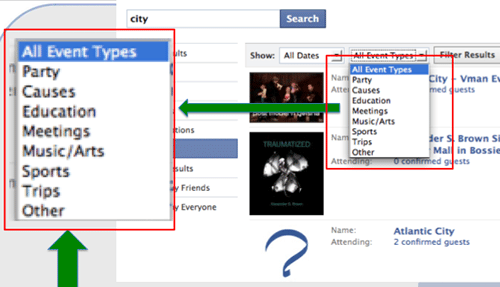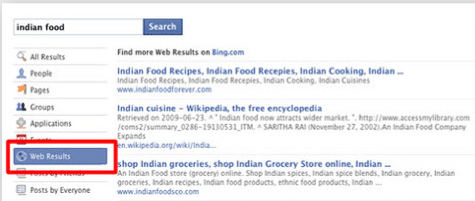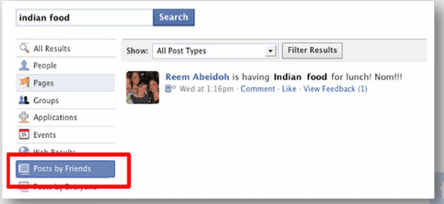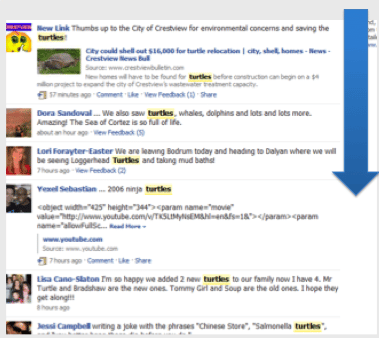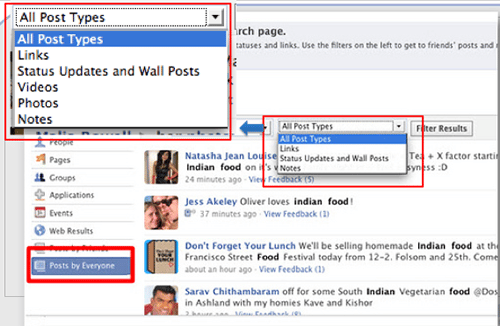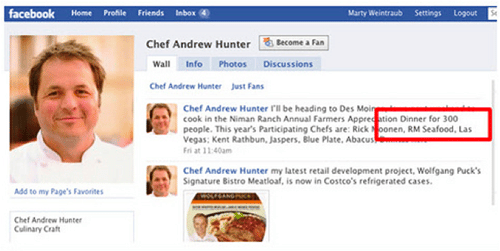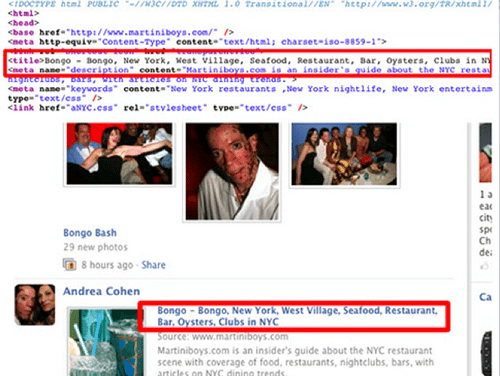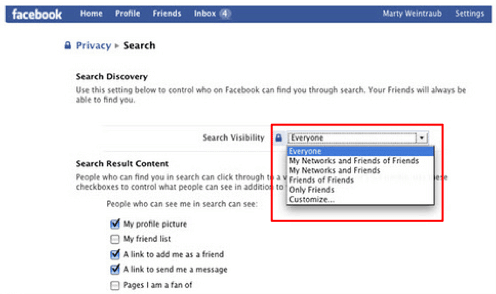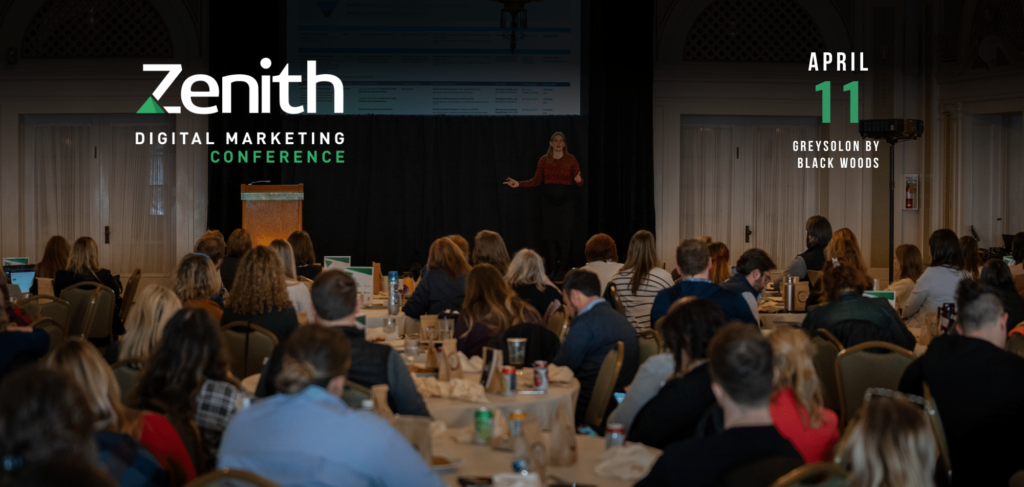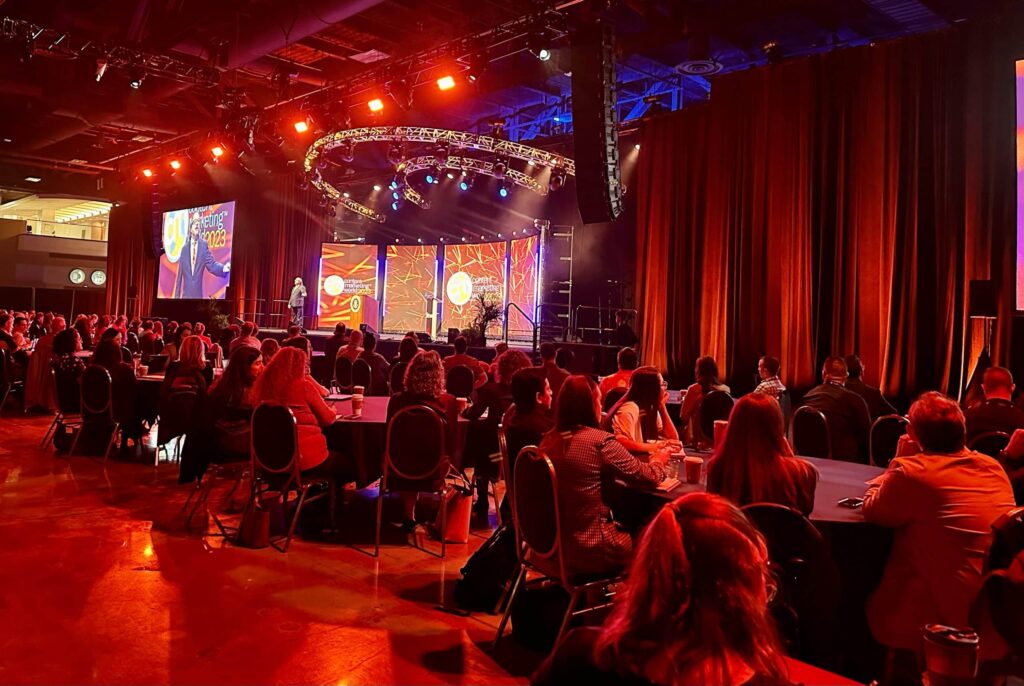What does it take to rank in Facebook’s newly enhanced internal search engine, which now spans the entire user base? This post offers results from AIMCLEAR‘s study of Facebook search and offers SEO tips & tricks for getting keyword queries ranked in FB’s organic SERPs.
We also examine opportunities for savvy marketers to best exploit Facebook’s expanded social graph search to immediate advantage and share what we learned about ranking factors. Â
(Advanced Facebook search-users can skip directly to “Facebook SEO.”)
Why Do We Care?
Facebook is almost unimaginable, a well laid play for network domination. Of 300+ million active users, 50% login every day. 2 billion photos and 14 million videos are uploaded every 30 days. 2 billion content blocks (web links, news stories, blog posts, notes, photos, etc…) are shared every week. The fastest growing demographic is age 35 and above.
Behind the login wall, FB amounts to a massive walled garden parallel Internet. With the exception of canned public profiles, the community doesn’t allow mainstream search engines Google, Bing, Yahoo or others to crawl and index inside the site.
Facebook’s Internal search engine has always been people-focused and rather weak. However in August they rolled out an enhanced inside search product which indexes a great deal more of users behavioral data points. Given the breadth of FB’s community, this development has some search marketers excited :).
For insight as to what data points one can search for among other FB users, have a look at your own privacy/search settings and note the stepped permission levels by which you manage others ability to search your own profile.
This screen actually means “I will allow everyone, my networks & friends of friends, etc…” to search my profile. Turn the analogy around to mean “the populations I can now search include friends of friends, only friends, etc…”
The CUSTOMIZE dropdown option provides further opportunity for reciprocal insights. The key option here is a checkbox which enables the entire FB population to find you. Some Facebook profiles we tested had this option checked by default. Others did not.
These permissions are also stepped, with the option of including or excluding your profile picture, friend list and links for others to send messages or friend you. Of course your friends can always find you. Turn this around to understand population segments visible to you.
The implications here are obvious. It’s now possible to search users who are not your friends. This can include others’ links, status updates, pages of which they’re fans, videos and wall posts.
The availability of this searchable user data is transient much of the time and only available for the last 30 days.
Anatomy of Facebook Search Engine Results Pages (SERPs)
Facebook SERPs are chunky, hierarchical in the ordering of blocks and within each block.
After searching the default segment is ALL RESULTS. PAGES & GROUPS usually top the list
However popular APPLICATIONS (apps’) can trump PAGES & GROUPS at the top of the chunky SERPs food chain.
Next up on the SERPs are usually POSTS BY FRIENDS.
WEB RESULTS are usually last and powered by Bing.
To be clear, Bing indexes the external world wide web and not internal Facebook.
PEOPLE search shows friends first…
… then extended network and geographic proximity for common names…
…and then from anywhere. Think of these as long tail names.
PEOPLE search also reveals folks who game by using profiles as business pages (First Name: Waldorf, Last Name: Astoria) or idiots screwing around.
For GROUPS, ranking fan count is the main, but not the only correlation. We tested freshness, geographic proximity, phrase density to erratic results. We think this would be an excellent place for Facebook to monetize the community in a minimally invasive way I.E. get groups to pay for play.
We tested to see if users’ stated interests impacted their GROUPS results.
They don’t. Even though there is a GROUP called “Giant Bicycles” and others using the name “Biking,” expressing those keywords as a personal interest did not result in finding those groups in the SERP for keyword “bicycles.”
Facebook crawls GROUPS titles, descriptions and rankings are mostly based on members-count. In the ALL chunky SERPs, GROUPS listings can be erratic and not based on member-count.
When searching GROUPS, note the preset query segmentation available. The are the same presets available when creating GROUPS. Turn this around to understand the importance of choosing new GROUP categories intentionally.
APPLICATIONS rank based on a) keywords in the app’s name & b) a straight up popularity contest scored by monthly active users. It is unknown what type of behavior constitutes “active” users.
EVENTS are ranked by geographic proximity and other block box factors.
EVENT titles are indexed along with Geo’.
Once again your ability to search Facebook by EVENT-categories lends insight to what others can search about EVENTS you create.
Bing WEB RESULTS within Facebook index the outside ‘web and not internal Facebook. They are not geo-savvy or personalized.
POSTS BY FRIENDS & POSTS BY EVERYONE are similar except for width of the network included in results. Keywords in links, status updates, wall posts, and notes are indexed. In some cases, the HTML title tag of external content is indexed and displayed. After keywords, rankings are simple.
Strictly chronological, how long listings last at the top of FB SERPs for any keyword is determined by how many users are bookmarking pieces of content and at what pace. If many users post topically relevant content, the faster the results are pushed down the page. It’s a linear fire hose effect and not personalized we’ve seen indexing occur as quickly as 30 seconds.
Yet again, segmentation available to you as you as a searcher displays exactly what others’ can search in your Facebook profile.
The results below for the query “Indian Food” indexed from the user’s status update.
The next result indexed from a Wall post.
Here’s an example of a business profile’s Wall post indexing. The query was “New York Seafood.”
In this case the HTML Title Tag of a profile’s external content Wall post indexes for the query “New York Seafood.”
Tips For Facebook Ranking Success
First, make your profile and/or Page visible to everyone Facebook-wide. If others can’t see you, they can’t search your data points.
Facebook SEO
- Optimize GROUP titles & descriptions with keywords.
- When Creating GROUPS, Categorize intentionally. If geo’ matters, include it in the GROUP name.
- Optimize EVENT name with keywords and include geo’ in the name.
- When creating EVENTS, categorize intentionally.
- Put most important information and keywords in HTML Title tag of outside content your control.
- Drop links to such content on Walls, Status. Updates & Notes.
- Optimize photo album titles with keywords. They index.
- Remember, every Facebook says they index content from the last 30 days. We suggest posting constantly. Gain FB organic prominence with app’s.
- Bing optimization now serves double duty with it’s inclusion as the external ‘web engine within Facebook.
- “People” with KW “names” can Index easily.
- Do whatever it takes, lift group & page fan-count.
Facebook does not release statistics for how many folks use search. Clearly the best best usage for marketers is the same as it ever was, one-on-one research to find plugged in users for selective relationship building. As always, engage and friend holistically and with purpose.
With FB’s expanded internal search, tons of new social competitive intelligence is available. Also we don’t discount the possibility that Facebook, with their recent acquisition of FriendFeed, won’t evolve to become a significant situational search engine to compete with Twitter search.
- Friends, friends of friends, networks & networks of friends are now your personal crowd sampling and demographic research tool.
- There are privacy Issues. Giving marketers access to discover this much about individual users is a lot like letting the fox in the chicken house. Wield this power responsibly but don’t miss the opportunity to make true friends with users whose recommendations matter to large groups.
- Find users chattering about specific topics, list them and reach out in friendship word-of-mouth style.
- Get around befriending limitations of “pages” by having real people be “ambassadors” using personal profiles. Deploy regional ambassadors for regional events.
- Leveraging friends is sticky business so give much more than you take
- Steadily share recurrent content to serve others.
- Holistic self promotion is cool but support the community first.Share links throughout FB to optimized content.
In Conclusion
Is Facebook internal search a threat to conventional search models? Obviously it isn’t right now. However by sheer magnitude of participation and personal nature of available data, anything is possible.
It makes sense that community members might trust SERPs comprised of friends, extended networks and themed groups-especially those with real-world authority. All of this depends on the rate of users adopting Facebook internal search and FB “the company’s” business slant.
For now, Facebook SEO is easy and the crowd sampling unbelievably robust. We welcome any contribution of our community’s understanding of Facebook search. Of course it’s possible to gain immediate prominence by paid FB search.
